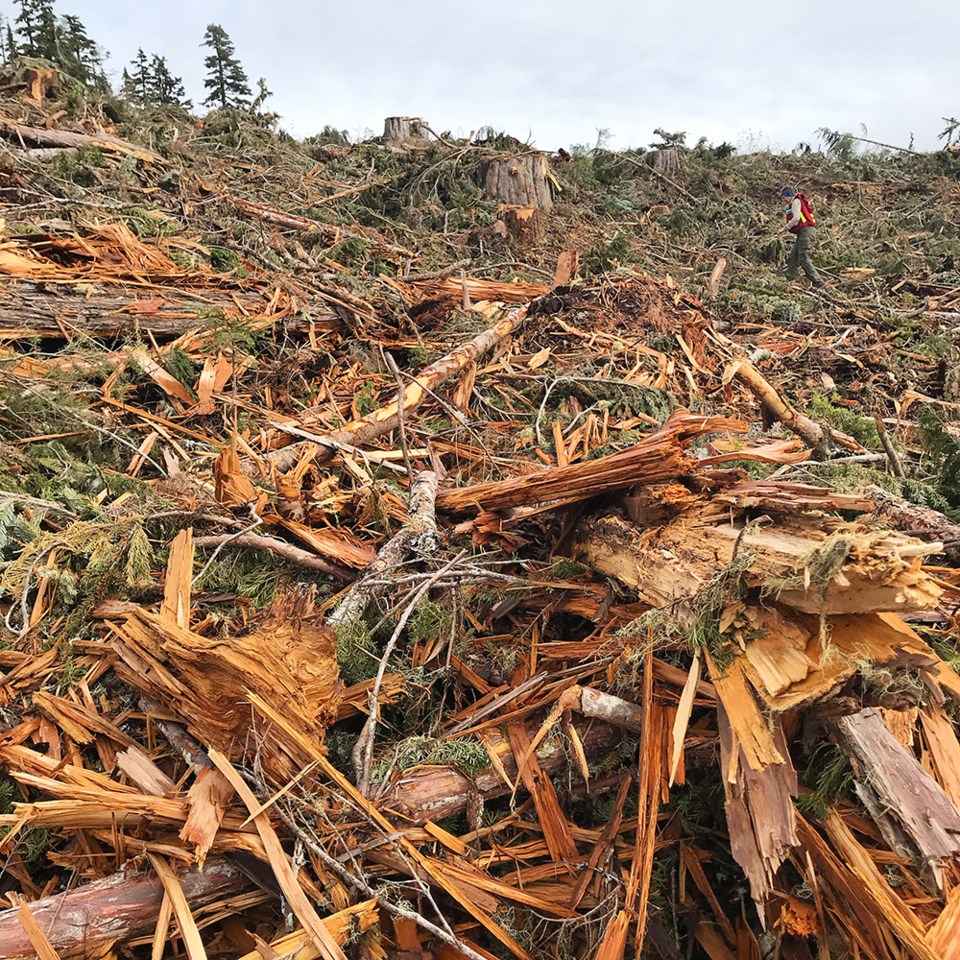As a young girl, I often visited my grandparent’s farm in Kelly Creek. I remember sitting in the backseat of their station wagon, without a seatbelt on, to pick up my grandpa’s paycheque at the mill.
Forestry has fed my family for a couple generations. The craft of a west coast faller is what my father has done for 50 years, starting in the Eldred Valley, and I spent a few years surveying cut block layouts in a variety of forests on the coast.
Production forestry (clearcut and plant) currently in BC values forests that are being managed for volume, that is “fibre” over value. Everything is bowing down to the “timber first” mantra, where sustaining the short-term flow of timber (allowable annual cut) is more important than sustaining the long term ecological integrity of a forest. Ecological forestry (selection logging and natural regeneration) focuses more on having the biota, structures and functional capacities intact, keeping a more resilient forest. Both practices have their own nuances, especially when “management objectives” and “desired conditions,” are driven by ethical values and beliefs.
Economics in Greek means the art of household management. The “eco” in economics is derived from the Greek term oikos/ekos (meaning home), which is also the root of the word “ecology.” It’s a reminder from the ancients of the interconnectedness of these concepts, now rendered ironic as humanity devours its home.
Economists think about the environment as an externality, but it’s only an externality when we disconnect supply and demand from humanity.
When European settlers brought the western paradigm of viewing an ecosystem as an object, a machine, a collection of interacting parts here to the coast, it interrupted Indigenous knowledge passed down since time immemorial of viewing nature as a subject, an ecosystem as a community of sovereign persons.
Today, anything falling outside of market contracts without a price on it, including the death of the living world, is visible. This is something people who sit in as government ministers tasked with managing the environment fail to see.
If current forestry practices symbolize my grandpa going to work to get his paycheque, and government policies the vehicle, we might soon be navigating a collision course with our kids in the back seat without a seatbelt on.
While the future is uncertain, we can manage risk in the present. Climate change is here and changing the rules of the road rapidly. Preserving ancient forests leaves more options for society with biodiversity and resiliency, but most importantly it gives us time value as the best technology for carbon sequestration and storage in the next three decades.
We need regionally based decisions that can reassess our values, a framework that hopefully can quantify risk moving into the future. Without changing our relationship with forests, and all the ecosystems for that matter, the time remaining for our species is running out.
Sadly, our lack of wisdom, responsibility, and reciprocity are turning out the lights for many other life forms. Everyone in a position of power, influence and policy change needs to have a transformative mindset. I care deeply about our forestry families and feel if we put enough time and attention toward a plan we can transition to a more sustainable future.
Although not all the answers are written in Al Gorley and Garry Merkel’s report, A New Future for Old Forests, one blueprint for rebuilding is.
Jill Marie Bronson is a Powell River resident and member of qathet Old Growth.



